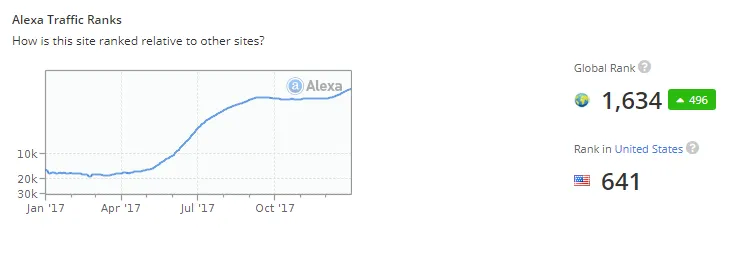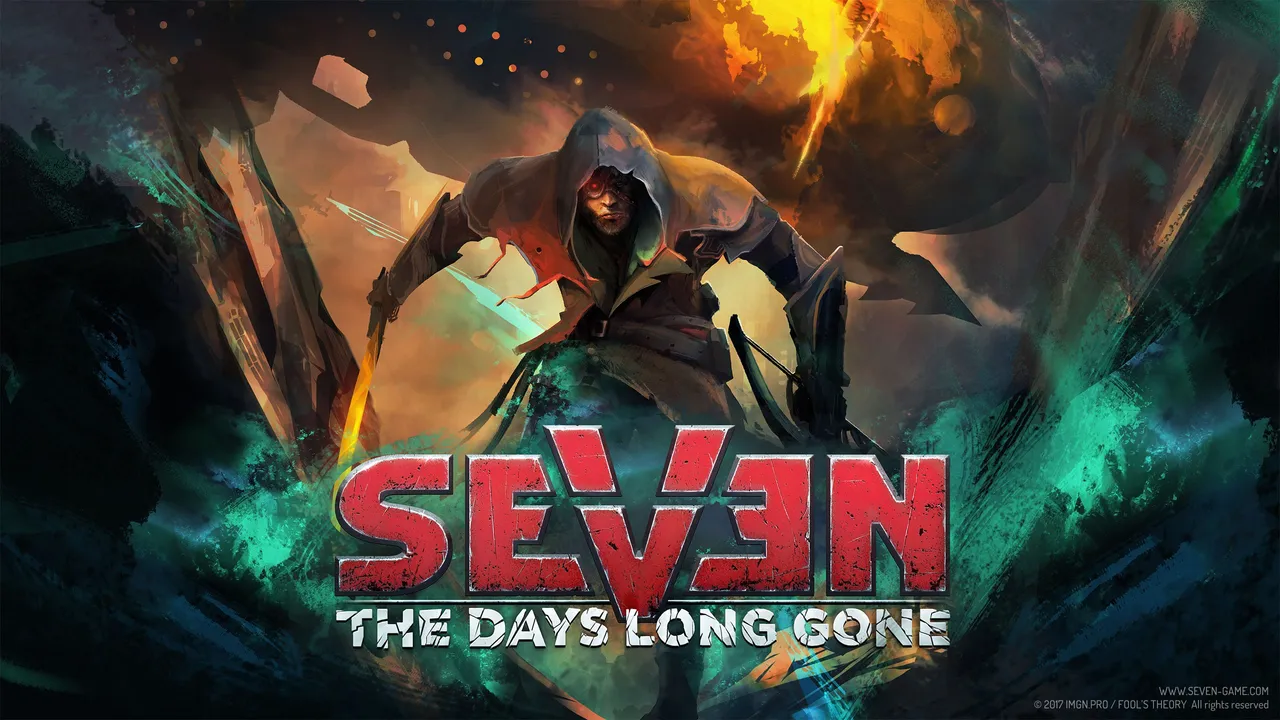
In our first hour at Seven: The Days Long Gone we accidentally end up in a forbidden zone and are caught. While fleeing, we end up outside the city in the wilderness, where we casually save a woman who is locked up by her husband in a hut surrounded by mines. A little while later we sneak quietly to the roof of a heavily guarded freight station, strangling the only guard there and swiping his uniform and pass - Hitman style. This allows us to walk in quietly and find out why a cargo of goods is stuck there. Or that time when we jump over the fence of the prison to sweep citrus fruit and then for an hour in vain try to get back into prison, because someone needs the fruit to burn alcohol.
Seven never stopped us or said how we should take on a mission. We were able to explore, try things out and do quests to your heart's content. It is characteristic of the almost immeasurable freedom you get in the game. The world and its inhabitants have their own rules and habits and it is up to you to respond smartly. Buildings always have a back or top entrance and you can for example collect samples from a bandit camp with some dexterity. It gives Seven the water cooler quality that also gives Skyrim a hand ("Should you hear what happened to me on the way to Morthal!").
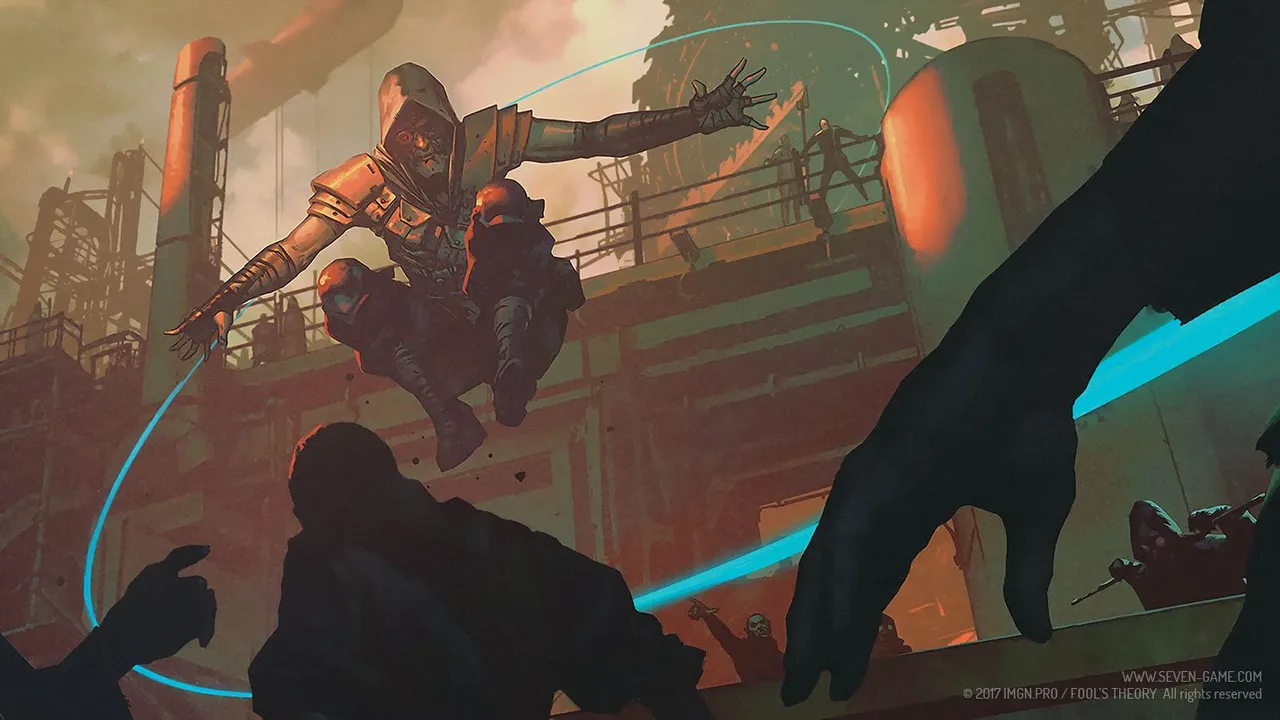
Surreal, but recognizable
It seems in the world of Seven: The Days Long Gone that a medieval fantasy setting has undergone an industrial revolution, resulting in a world à la Shadowrun or Dishonored. Technology, magic and biology go hand in hand, run into each other or form a stark contrast. This, however, feels very natural, because despite the surreal atmosphere the world is grounded in human, personal and recognizable themes and stories. Perhaps you can not generate sympathy for every character, but usually empathy. You do not have to agree with their actions, but at least you can imagine why they do what they do.
The set-up of Seven in short: master thief Teriel becomes part of a complex, large-scale and opaque story after a seemingly simple job. Many apparently unrelated quests are unexpectedly interwoven with the larger whole and are marked by the balance of power that has been in the background for centuries. It ensures that the world has an exceptionally high "density": whatever you do, chances are you will learn more about the central conflict and its causes and consequences. Fortunately, this is also alternated here and there with funny and airy missions to make it all easier to digest. With a few ongoing quests your journey through the world feels like an organic whole in which you spontaneously take a detour here and there.
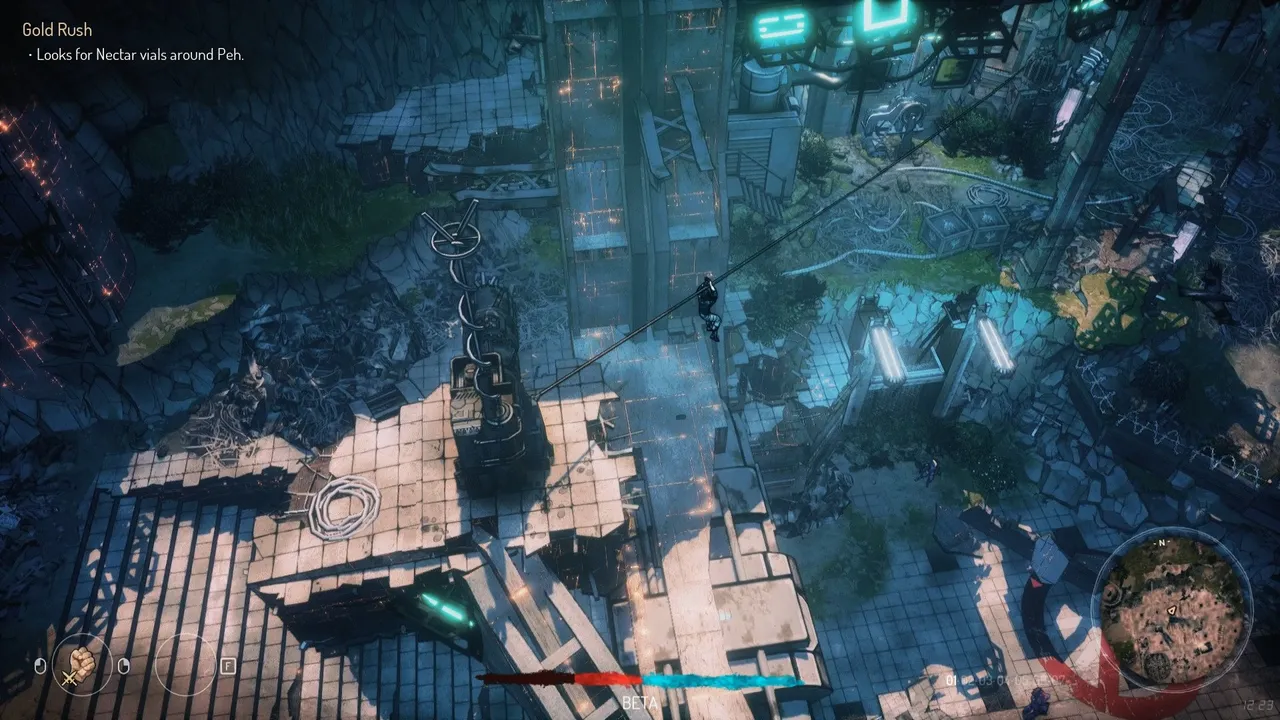
Devilish dilemmas
Seven is also not averse to diabolical dilemmas and often presents situations that seem simple at first glance, but later turn out to be more complex and layered than you thought. In the end you sometimes have to make harrowing choices and bear responsibility for the consequences. However small these may be, they will not let you go. It makes Teriel more human: he can not easily heal old wounds or destroy established power structures. That takes a lot of time and effort. It emphasizes once again that the world is not as simple, clear and black and white as we sometimes think. This element also contributes to the credibility of the world.
It is a joy to cross the world and search
The almost limitless freedom is not only expressed in the free map. Seven has extensive game mechanics for stealth and platforms. There are bushes everywhere, heaps of debris and furniture or boxes to hide in or behind. In addition, almost everything in the particular vertical world to climb. It is therefore a pleasure to traverse and search the world in this way. This is dotted with treasures such as skill chips, to unlock skills, and blueprints to craf new items.
Although Seven is very similar to an action rpg, there are no levels. Instead, the game uses a Dark Souls-like form of progression: your equipment determines to a large extent how much damage you do and how many hits you can collect. Fighting has a fairly simple basis: attack, special attack, dodge. Each weapon has its own moveset, and skills such as placing a small black hole give it a bit of extra power. In addition, there is an excess of traps, arrows, grenades and other utensils that make your life a bit easier. Even your skills are not fixed. You can change these at any time and make them stronger with modifications.
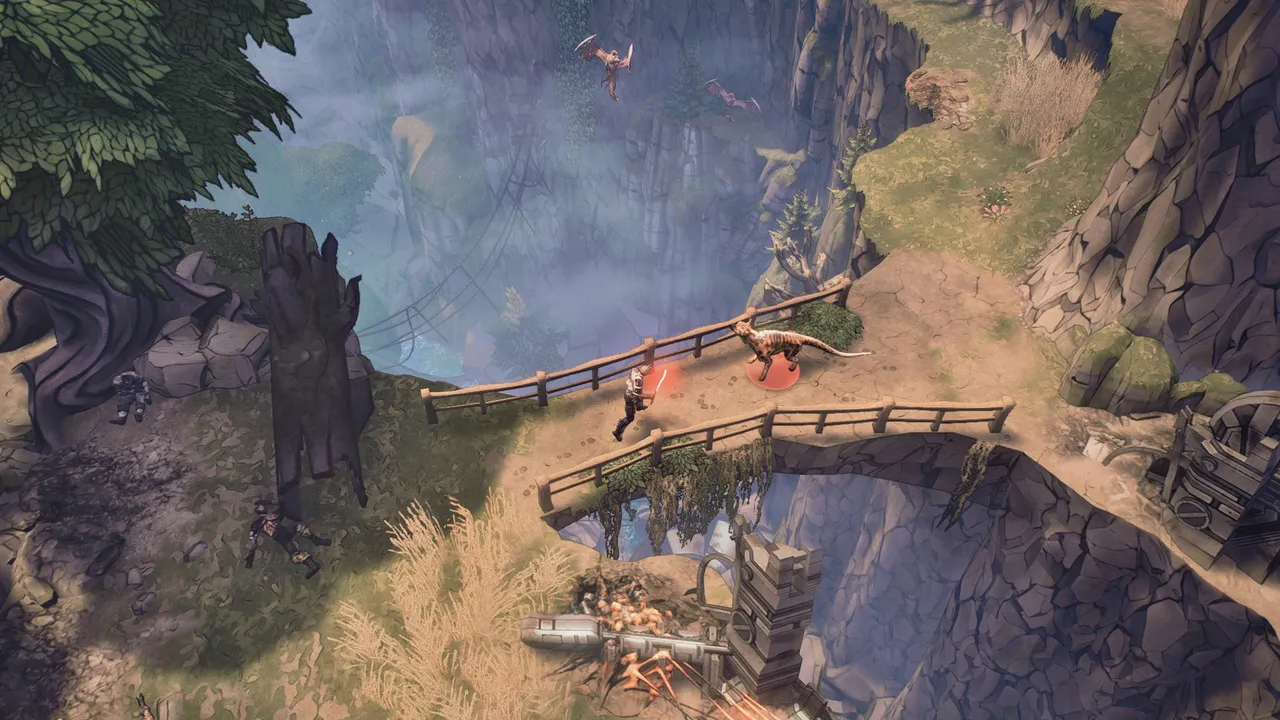
Witcher arpg
Whoever plays Seven is likely to see more and more parallels with The Witcher 3: Wild Hunt. The Sense mode with which you solve mysteries, moral gray quests and a protagonist who looks suspiciously like Geralt are the most striking similarities. That is not surprising: developer Fool's Theory previously worked on The Witcher 2 and 3, among other things. The former AAA developers have withdrawn themselves in the Polish mountains to put their vision on game development into practice.
It is clearly noticeable that there is a concise vision behind Seven. It is as if 'freedom' was at the top of the to-do list and everything was derived from it. We do want to make some comments about that statement: not everything fits in well with the core vision. This makes the crafting system redundant, cumbersome and unnecessarily restrictive. Furthermore, the game sometimes can not let it take over the reins. It is sometimes impossible to avoid a fight, which is diametrically opposed to this vision.
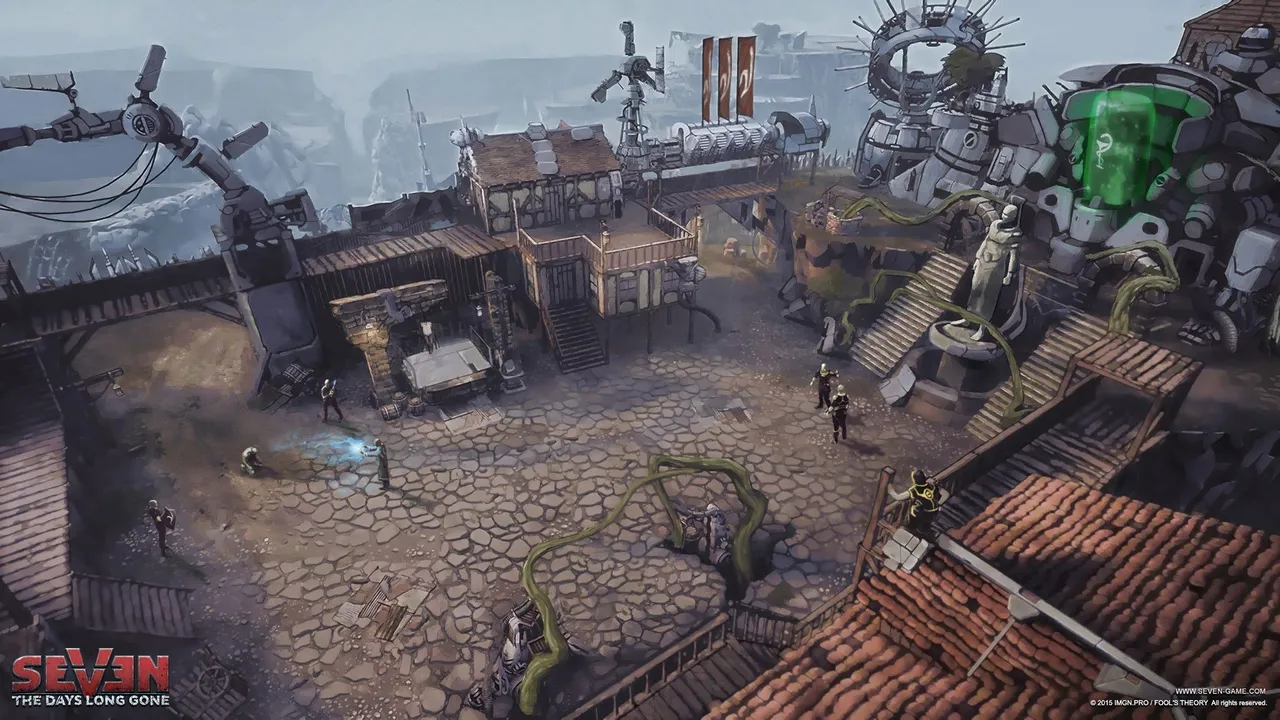
Moreover, the downside of the freedom is that at a given moment you are full of the constant running from hot to dry, even if there is so much to do along the way. Fast travel is an option, but you first have to unlock the stations with great difficulty. The map also does not clearly show height differences and obstacles. The option to travel to large locations would be welcome, especially given that a number of places are far away from fast travel points.
Separately, we regularly suffer from crashes, bugs and inconsistencies in the control and platforms. These things are not very annoying in themselves, but they never stop looking up. What we do suffer from, are the long loading times and the performance. Seven is an unlikely heavy game. Even at low resolutions and video settings, the game manages to maintain a low framerate, all at busier locations. The game also consumes working memory: in our case there is always four out of eight gigabyte in use. We therefore suspect that the game could have been optimized a lot better.
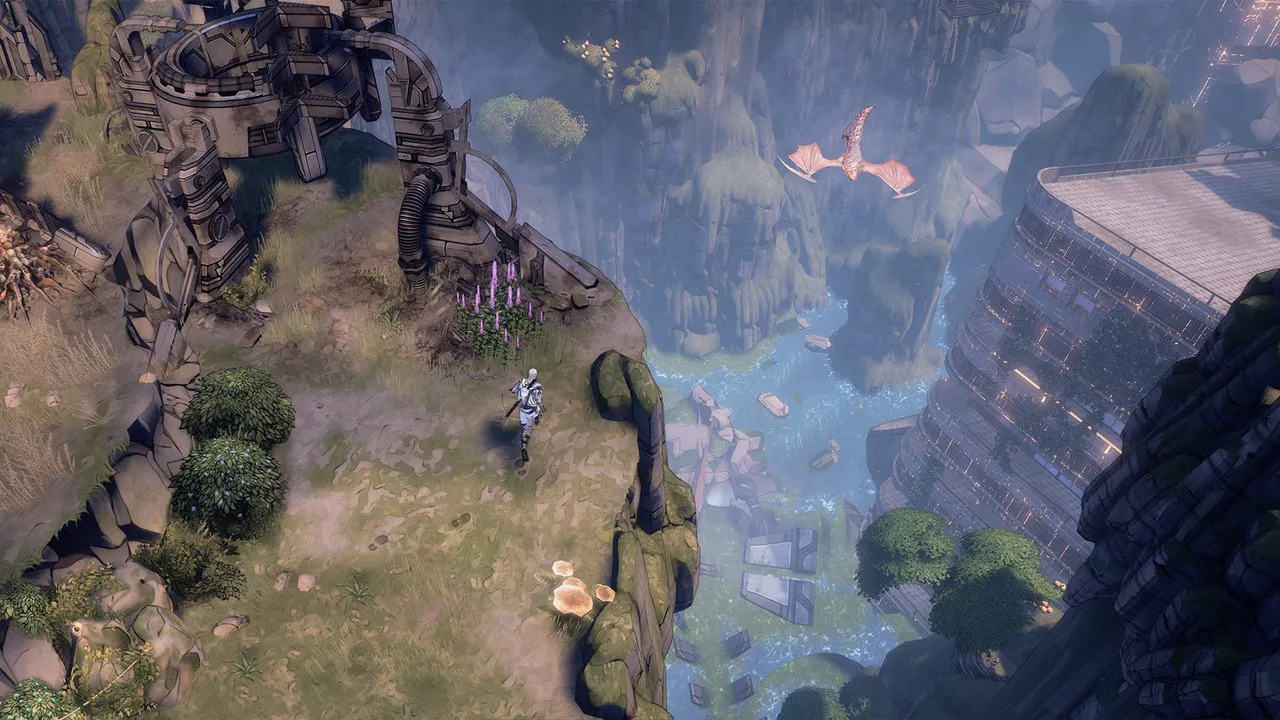
Seven: The Days Long Gone is now out on PC ( Steam ).
Conclusion
Freedom is the dogma of Seven: The Days Long Gone. How you tackle missions, what choices you make and where you are going does not matter. You are free to discover, succeed and fail. It results in a deep, complex and rich rpg that is highly recommended despite the moderate technical finish.
✔ Freedom, Immersion, Story, Stealth, Platforms
✖ Performance, Charging times, Crafting, Bugs
Thanks for reading, I hope you liked it!

Steem's Popularity Is Incredible!
Share the joy by inviting others!
Get More Exposure On The Chats!
It is a best way to get more exposure through private messages and in the chat rooms. These are some of the best places to get more exposure & makes Steem friends.
- Official Steemit.chat
- SteemSpeak.com @fyrstikken (24/7 Voice chat)
- Peace, Abundance, Liberty @aggroed @canadian-coconut @ausbitbank @teamsteem and More (Minnow Support Project)
For new & best authors to move forward!
http://curiesteem.com @curie
https://steemvoter.com @steemvoter @thecryptodrive @cryptomancer
My Latest Posts:
- Topper of 2018: Anthem
- Defunct Review - Visually the game is nicely varied
- Little Witch Academia Preview - Magic for dummies
- Grand Theft Auto Online's Doomsday Heist is one of the best updates to date
- Bravo Team Preview - Saving the lot in VR together
- The time of your life - As the course of the seasons
- One Piece World Seeker Preview - Open world in sight!
- The Seven Deadly Sins: Knights of Britannia Preview - The darkness is coming

